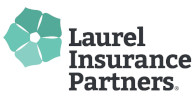Medicare Terms & Definitions
Coinsurance—An amount you may be required to pay as your share of the costs for services after you pay any deductibles. Coinsurance is usually a percentage (for example, 20%).
Copayment—An amount you may be required to pay as your share of the cost for a medical service or supply, like a doctor’s visit, hospital outpatient visit, or a prescription. A copayment is usually a set amount, rather than a percentage. For example, you might pay $10 or $20 for a doctor’s visit or prescription.
Deductible— The amount you must pay for health care or prescriptions, before Original Medicare, your prescription drug plan, or your other insurance begins to pay.
Excess charge—If you have Original Medicare, and the amount a doctor or other health care provider is legally permitted to charge is higher than the Medicare‐approved amount, the difference is called the excess charge.
Guaranteed issue rights —Rights you have in certain situations when insurance companies are required by law to sell or offer you a Medigap policy. In these situations, an insurance company can’t deny you a Medigap policy, or place conditions on a Medigap policy, such as exclusions for pre‐existing conditions, and can’t charge you more for a Medigap policy because of a past or present health problem.
Guaranteed renewable policy—An insurance policy that can’t be terminated by the insurance company unless you make untrue statements to the insurance company, commit fraud, or don’t pay your premiums. All Medigap policies issued since 1992 are guaranteed renewable.
Medicaid—A joint federal and state program that helps with medical costs for some people with limited income and resources. Medicaid programs vary from state to state, but most health care costs are covered if you qualify for both Medicare and Medicaid.
Medical underwriting— The process that an insurance company uses to decide, based on your medical history, whether to take your application for insurance, whether or not to add a waiting period for pre‐existing conditions (if your state law allows it), and how much to charge you for that insurance.
Medicare Advantage Plan (Part C)—A type of Medicare health plan offered by a private company that contracts with Medicare to provide you with all your Medicare Part A and Part B benefits. Medicare Advantage Plans include Health Maintenance Organizations, Preferred Provider Organizations, Private Fee‐for‐Service Plans, Special Needs Plans, and Medicare Medical Savings Account Plans. If you’re enrolled in a Medicare Advantage Plan, Medicare services are covered through the plan and aren’t paid
for under Original Medicare. Most Medicare Advantage Plans o er prescription drug coverage.
Medicare-approved amount—In Original Medicare, this is the amount a doctor or supplier that accepts assignment can be paid. It may be less than the actual amount a doctor or supplier charges. Medicare pays part of this amount and you’re responsible for the difference.
Medicare prescription drug plan (Part D)— Part D adds prescription drug coverage to Original Medicare, some Medicare Cost Plans, some Medicare Private‐Fee‐for‐Service Plans, and Medicare Medical Savings Account Plans. These plans are offered by insurance companies and other private companies approved by Medicare. Medicare Advantage Plans may also offer prescription drug coverage that follows the same rules as Medicare Prescription Drug Plans.
Medicare SELECT—A type of Medigap policy that may require you to use hospitals and, in some cases, doctors within its network to be eligible for full benefits.
Open Enrollment Period (Medigap)—A one‐time‐only, 6‐month period when federal law allows you to buy any Medigap policy you want that’s sold in your state. It starts in the first month that you’re covered under Medicare Part B, and you’re 65 or older. During this period, you can’t be denied a Medigap policy or charged more due to past or present health problems. Some states may have additional Open Enrollment rights under state law.
Premium— The periodic payment to Medicare, an insurance company, or a health care plan for health care or prescription drug coverage.
State Health Insurance Assistance Program (SHIP)—A state program that gets money from the Federal government to give free local health insurance counseling to people with Medicare.
State Insurance Department—A state agency that regulates insurance and can provide information about Medigap policies and other private health insurance.
